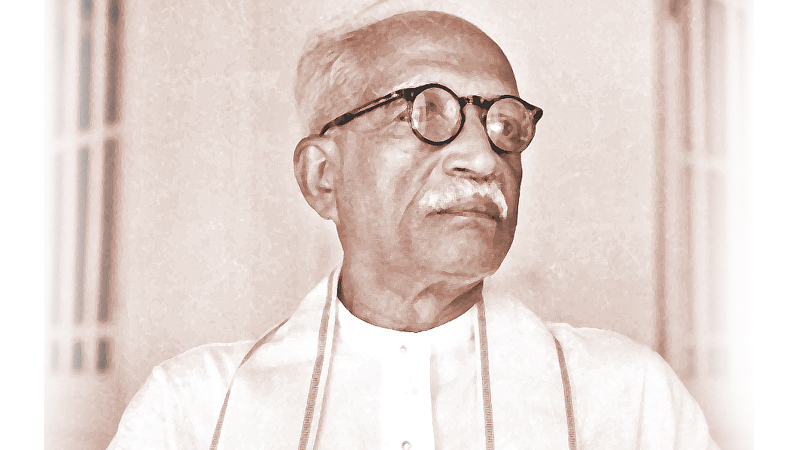By Anushka Kahandagamage
We have seen more blood than this small island can soak. The country has seen decades-long war and two youth insurrections (1971, 1988-89) with thousands of young lives lost. In the ‘post-war’ era, violence continues unabated in the attacks on Muslims and Christians, the Easter bombings, and countless horrifying incidents of everyday violence, exemplified most recently in the discovery of a woman’s decapitated body in a suitcase.
Ethnoreligious tensions smoulder under the ashes with no political solution in sight. Short-sighted political-economic policies have deepened societal hierarchies, while widening the gap between communities and atomizing the individual. Market-driven political campaigns are being carried forward by dominant political parties capitalizing on Sinhala-Buddhist majoritarian narratives. While their rhetoric has infiltrated most social and political institutions in the country, the education system has not escaped.
In fact, education institutions have served to produce, reproduce and sustain such hegemonic narratives. General educational curricula tend to glorify ‘Sinhala-Buddhist’ culture and stifle critical thinking and do not, for the most part, train students to critically engage in the learning process. For example, school history syllabuses uphold a majoritarian narrative, and do not compel students, or teachers, who are products of the same system, to reflect upon the multiple narratives and histories that explain where we are today. Marginal voices are silenced in the school textbooks to produce a dominant Sinhala Buddhist narrative, lending support to the creation of ‘official memory’ regarding the country’s history.
Modern conceptions of ethnicity are being imposed upon historical events that occurred centuries prior to reinforce the ethno-centric nation state, for example, by the depiction and glorification of King Dutugemunu as a ‘Sinhala Buddhist King’ who defeated the ‘Tamil King’ Elara. On the other hand, distorted representation of ethnic minorities in the text books has resulted in prejudice and stereotyping, while separating schools by language, ethnicity, and religion has further impeded cultural exchange. These gaps in education have ultimately fueled distrust and ignorance between ethno-religious communities with devastating results.
It is hardly surprising then that efforts at war-time peacebuilding, and even post-war reconciliation, have been largely externally driven, with minimal state support. In fact, peace negotiations and related processes have been consistently undermined by the state as conspiracies by the international community to damage the country’s sovereignty with little protest from the Sinhala-Buddhist majority. In the post-war context, Sinhala-Buddhist nationalist groups have converged to actively organize concerted attacks against Muslim communities, bringing masses of Sinhalese youth into their fold. These political efforts to divide and pit communities against each other encounter little or no ideological resistance.
The irony lies in that we do not seem to see the link between our pathological social conditions and our education system. At most, debates connecting the two have remained thinly confined to progressive circles. Instead of playing a vital role in building trust in the post-war context among our communities, the education system has served to perpetrate structural violence along class, gender, ethnic and other lines. On the other hand, political leaders discuss education primarily in relation to the economy or, more specifically, the education system has been scapegoated for the crisis in the economy.
Trapped by discourses of employability, the government has constructed the economic crisis as a crisis of education, highlighting, in particular, the education system’s inability to create ‘skilled’ workers to contribute to the tenuous ‘knowledge economy.’ It is too easy to make education ‘the problem’ (and solution) to the ‘crisis of the economy.’ Yet, the SLPP manifesto, which guides education policy, presents education as the problem for which the sole solution is STEM (Science, Technology, Engineering, and Mathematics) education.
In the section, ‘A System of Higher Education to produce Technocrats’, the SLPP manifesto focuses exclusively on producing ‘technocrats’ by enhancing STEM education and English as a soft skill, at the expense of Arts Education. Here, it is assumed that STEM education will solve the crisis in both economic and education arenas and lead the country towards so-called ‘economic development’. Although it is impossible to predict the future job market, and the present demand for labour in Sri Lanka appears to lie in the apparel industry and security services (Labour Demand Survey 2017), policymakers are focusing on developing IT ‘skills’ to produce task rabbits who are suitable for the gig economy.
Yet, arts education is widely recognized to be crucial for promoting co-existence. Indeed, the 2016 Consultation Taskforce on Reconciliation Mechanisms recommended the inclusion of subaltern and excluded narratives in history syllabuses, pointing to the urgency to move away from linear and hegemonic accounts of history, towards a critical engagement, with mutual understanding of the effects of growing up in a militarized, racially/ethnically-biased, patriarchal, heteronormative society.
The Consultation Taskforce also tasked the education system with addressing ethnoreligious tensions and widespread distrust among communities through a range of initiatives, such as school and university exchange programmes, language programmes, art forms, etc. They further recommended common programmes of study, such as International Relations at the universities, so that students could learn from experiences across the world. Many such recommendations never came to life; the economic imperatives for STEM education and the myth of unemployability have served to detract education debates from social issues, while further weakening Arts education.
It is not my intention to propose educational reforms which neglect the economy entirely, but rather draw attention to the implications of approaching education solely as a means for ‘economic development’ particularly in our fragile post-war context. No doubt education has to cater to the economic needs of society, but the world has come a long way since ‘development’ was reduced to the ‘economy’. Contemporary approaches to development are much broader with far-reaching goals and meanings beyond the economy. Education should be a vehicle for achieving larger social goals through the development of creative capabilities and peaceful co-existence, which could, in turn, facilitate realizing economic goals within a society that is not plagued by violence.



